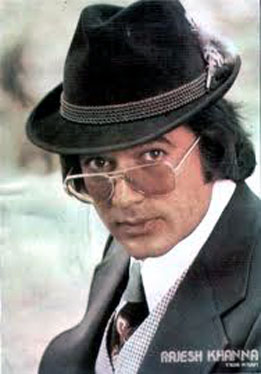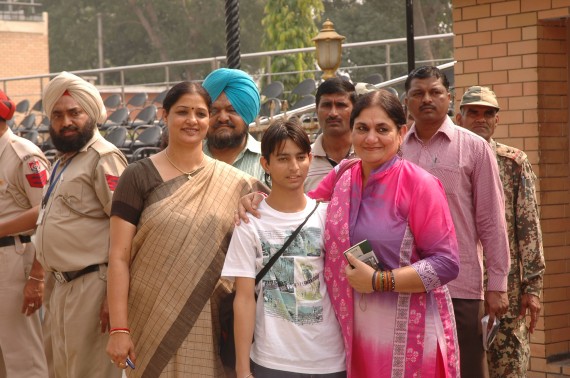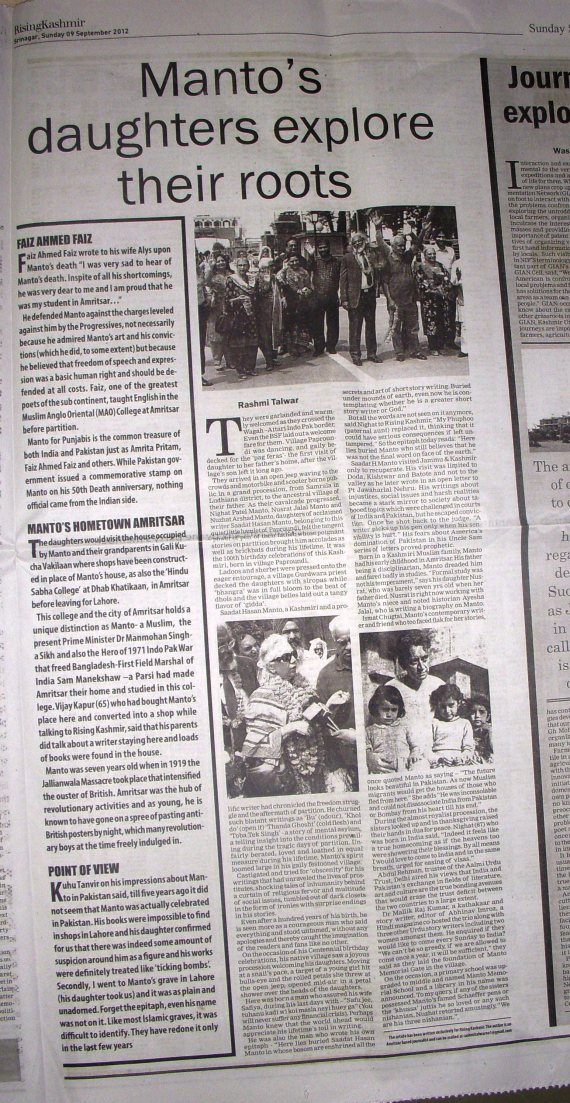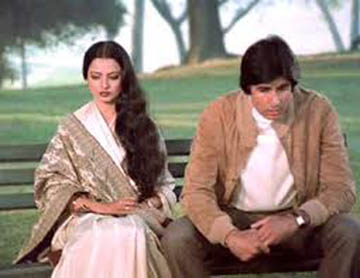
In 70s, Amritsar’s Khanna families named their sons Rajesh, after Superstar!
By Rashmi Talwar
The lowered goggles, the twinkling ‘come-hither’ eyes, nod of the head and girls swooned!
This was the charisma of Rajesh Khanna- the first superstar born to India.
After Rajesh’s sad demise from a mysterious ailment, for many teenagers then of 1970’s in Amritsar –the Hathi Mere Saathi – star’s stardom is remembered longingly, especially amongst his female fans.
His lip sync in songs was so perfect , it raised the equation of the singer –Kishore Kumar with the actor.
The languid –‘Pushpa, I hate tears !’ drove girls teary eyed. Many slept with pictures of the Rajesh Khanna under their pillow, spoke to him, offered sweets on his birthday, to his pictures! Many were known to have written letters in blood. His co-star of many films Sharmila Tagore Pataudi –his –‘Sapno ki Rani–, had aptly contended that she was wonder-struck by ‘Kaka’s’ hysterical fan following .
But the 69-year old star born on December 29, 1942 never came back to Amritsar, his birthplace in ‘Gali Tiwariaan’ after his stardom. On his death though, in the narrow Gali, gloom has set in amongst the actor’s die-hard fans, relatives and friends who mourned the death of India’s first superstar, that took romance to new heights.
“Who would have thought that this pimply –faced boy would one day rule the hearts of women for more than a decade.” recalls Faquir Chand his childhood friend in the gathering outside his ancestral house.
Jatin Khanna , as he was named in childhood was lovingly called ‘kaka’ as were most boys in those days in Amritsari mohallas. Rajesh’s father a railway contractor in Lahore, moved to Amritsar after partition. Rajesh was adopted by Nand Lal Khanna his father Chunni Lal Khanna’s brother . Later shifting to Bombay wherein before entering the glittering glare of tinsel town, he was renamed Rajesh Khanna.
So popular and endearing was he to Amritsaris during his stardom, that many boys in the Khanna families of Amritsar were named Rajesh after him. I remember one such Rajesh Khanna, who was nicknamed ‘Babu Moshia’ the name Rajesh Khanna used for Amitabh in film “Anand” – the dialogue “Babu Moshia, zindagi aur maut upar wale ke haath hai… hum sab toh rang manch ke katputhliyaan hain jinki dor upar wale ki ungli pe bandhi hain kab kaun kaisa uthega yeh koi nahin bataa sakta hain !!” Well, true turned out this dialogue for Rajesh and true is it for all. .
“It is a sad moment. even though he did not come back to this area after becoming superstar but still he took the name of the family to dizzying heights’’, says Duni Chand Khanna, cousin of the actor. “The family had migrated from Lahore and after a brief stay in Amritsar left for Bombay. “Rajesh Khanna, regularly visited here to spend vacations as a child. He even came when he was going to college in Mumbai. But after becoming a superstar in films, he never came back.” Duni added
However, pride can be painful for dear ones at times. When Rajesh’s name cropped up for Amritsar’s MP elections , Rajesh refused- he probably felt that he had snapped his connect with the city of his birthplace.
Other events in his life like his sudden marriage to a 16 year old Dimple Kapadia less than half his age and ditching long standing girl friend Anju Mahendru did not deter his fan following that mounted more due to the fairy-tale Mills and Boons type of romance.
Now much-married to Reliance scion Anil Ambani , Tina Munim another actress and that phase of ‘toothbrush’ sharing with Rajesh, made headlines. Politics however was never his cup of coffee. Many including his most noted co-star Sharmila Tagore says ‘Kaka’s brush with politics could be much avoided, though he won against fellow actor Shatrugan Sinha in delhi’ .
.
The ancestral house of the superstar jointly held by three brothers including Rajesh’s father , his foster father and uncle besides another uncle Munni Lal Khanna was donated to a Shiva temple and serves as an attached property of the temple .
Faqir his friend recalls about Rajesh’s vacation visits to the mohalla . “In the Mohalla too , Rajesh as -Bumbai ka Babu- , as he was called could get away with anything owing to his innocent smile.
Between the years 1969 and 1972 almost everything he touched turned to gold — 15 consecutive hits of various degrees. No wonder producers chanted: ‘Upar aaka, neeche Kaka !’(God above and Kaka, Khanna’s pet name, on earth below). Unable to find a phrase that captured the phenomenon, the hypnotic and the media industry finally coined a new term: the Superstar for Rajesh Khanna. He was not without flaws but in the backdrop of a train journey, a number revisits my mind for this trend blazer– ‘Zindagi ke safar se Juzaar jatey hain jo Maqaam …woh fir nahi atey …” of film Aap ki Kasam .. ‘Umar bhar unka pukarey koi naam, ..woh fir nahi atey ….”
BOX Item — Kuch toh log kahenge…. Pak town claims ‘Superstar’ as its own ?
A sleepy township of Burewala in Faisalabad, Pakistan claims that Rajesh Khanna was born here in 1942 and the gathering there is planning a remembrance session in memory of the departed Indian superstar.
Old-timers of Burewala say the Indian actor was not only born there but also stayed until he was 5 years old in a double storey house that is still intact and probably built around 1934-35 . They claim that the actor studied in MC Model High School. Some claim that records in school mentions admission of one Jatin Khanna (a name that was later changed to Rajesh when he joined Bollywood) to substantiate their claim.
They also claim that Khanna’s father was not only one of the founder members of this school but also remained its headmaster for many years till the Indo pak Partition after which the Khanna family left for Amritsar.
The house attributed as birthplace of Rajesh Khanna is said to be located on Multan Road and according to some , has ‘Jatin Bhawan’ engraved in Hindi on its elevation besides lines from the “Gayatri mantra”, to which the new owner has made no changes .
The claim by the township could be true, as Rajesh is said to be born before partition in year 1942 and their family was living on the Pakistani side. Only family members of superstar Rajesh Khanna can put the controversy to rest.
Hit Songs :
1. Yeh Jo Mohabbat Hai – (Kati Patang)
2. Zindagi Ek Safar Hai Suhana – (Andaz)
3. Kahi Door Jab Dil Dhal Jaaye – (Anand)
4. Mere Sapno Ki Rani – (Aradhana)
5. Kuch Toh Log Kahenge – (Amar Prem)
6. O Mere Dil Ke Chain – (Mere Jeevan Saathi)
7. Kora Kagaz – (Aradhana) [1969]
8. Jai Jai Shiv Shankar – (Aap Ki Kasam)
9. Maine Tere Liye Hi Saat Rang Ke – (Anand)
10. Yeh Kya Hua – (Amar Prem)
11. Roop Tera Mastana – (Aradhana)
12. Hume Aur Jeene Ki Chahat Na Hoti – Agar Tum Na Hote
13. Chingari Koi Bhadke – (Amar Prem)
14. Yeh Shaam Mastani – (Kati Patang)
15. Pyar Deewana Hota Hai – (Kati Patang)
FIRST PUBLISHED IN RISING KASHMIR

























Recent Comments